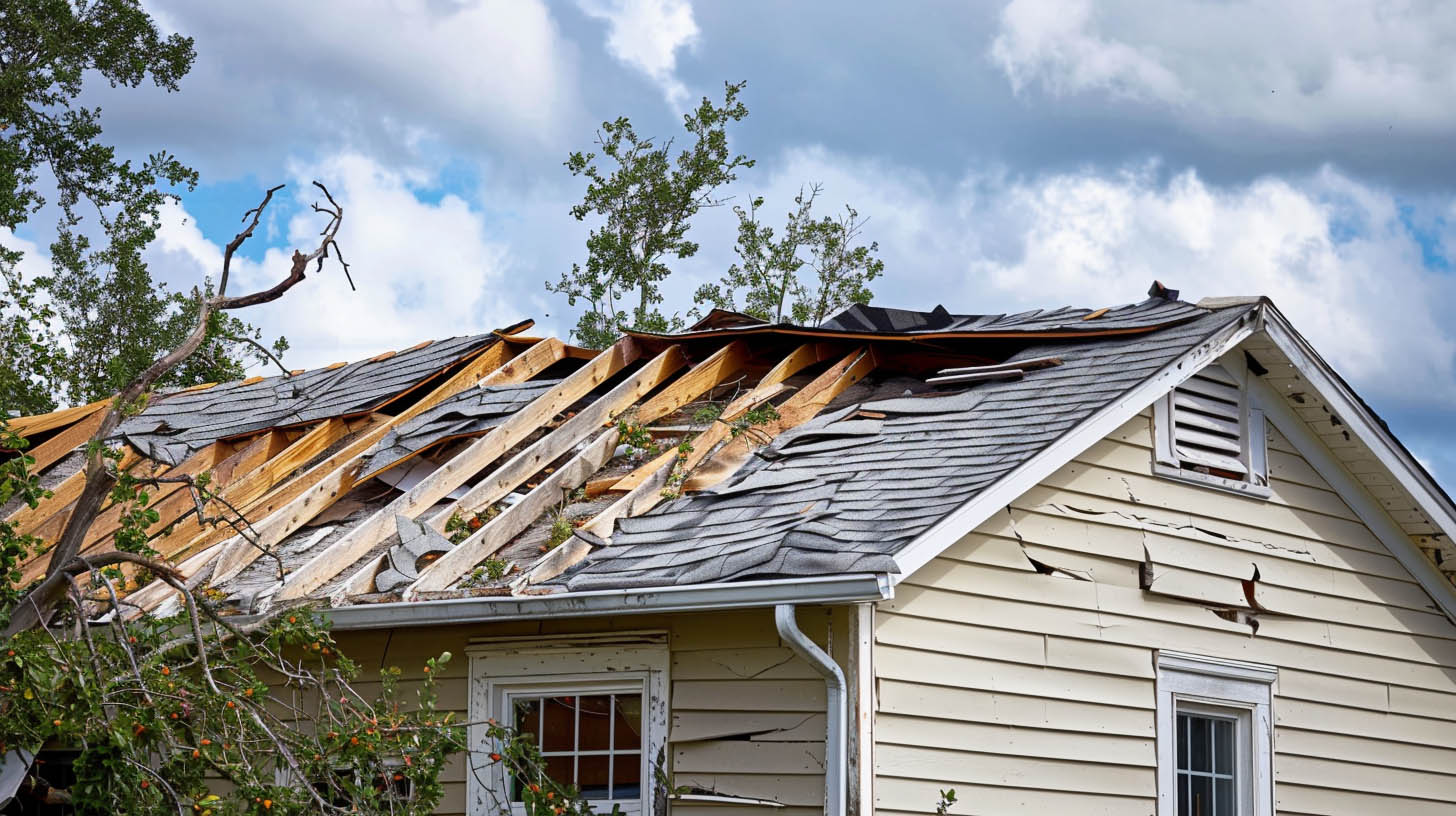Storms can be brutal on residential structures, particularly rooftops which bear the brunt of extreme weather. Understanding the common types of storm damage is crucial for maintaining the integrity and functionality of your roofing system. This guide provides detailed insights into the typical damages roofs can sustain during storms and the proactive steps homeowners can take, including the expert services provided by Summit Exteriors.
Wind Damage: The Unseen Threat to Roof Stability
Lifting and Displacement of Roofing Materials
High winds are notorious for their ability to lift shingles, tiles, and even metal sheeting, compromising the roof's waterproof seal. This kind of damage may not always result in immediate leaks but can significantly weaken the roof's structure over time, leading to potential failures during subsequent weather events.
Strategies for Mitigation
Post-storm inspections are essential to assess and repair lifted or missing shingles to prevent further structural compromise. Ensuring that roofing materials are properly nailed down during installations or repairs can also reduce the risk of wind damage.
Hail Damage: More Than Just Cosmetic
Impact on Roofing Materials
Hail can cause punctures and fractures in shingles and tiles, leading to immediate and long-term roofing problems. Even if hail impacts do not penetrate the roof, they can strip away granules from asphalt shingles, reducing their effectiveness and lifespan.
Detection and Repair
Hail damage might not be immediately obvious. It requires a thorough inspection by professionals who can identify and quantify the damage, ensuring that all compromised areas are promptly repaired or replaced to maintain the roof’s integrity.
Debris Damage: External Forces at Play
Physical Impact from Falling Objects
Trees, branches, and other debris can fall onto roofs during storms, causing punctures, scratches, or crushing impacts that compromise the roof’s surface. Blocked gutters and drainage systems from accumulated debris can also lead to water pooling and increased load on the roof structure.
Immediate Response and Cleanup
Removing debris quickly after a storm is vital to prevent further damage and alleviate excessive weight on the roof structure. Professional roofers can safely remove debris, assess the damage, and perform necessary repairs to restore the roof's condition.
Importance of Timely Roof Inspections and Repairs
Preventing Progressive Damage
Timely identification and repair of storm damage are key to preventing minor issues from escalating into major problems. Regular inspections by qualified professionals can spot early signs of damage that homeowners might miss.
Ensuring Long-Term Durability
Routine maintenance and immediate repairs after storms not only extend the life of the roof but also ensure it continues to provide the necessary protection to the home. This proactive approach minimizes the likelihood of extensive repairs or premature roof replacement.
Insurance Claim Assistance
Professional roofing companies, like Summit Exteriors, specialize in helping homeowners navigate the often-complex insurance claims process. This ensures that homeowners receive the compensation they are entitled to for storm damage repairs.
Conclusion
The resilience of your roof against storms is not just about the quality of materials but also about ongoing maintenance and professional inspections. Homeowners should prioritize regular roofing check-ups, especially after severe weather events. At Summit Exteriors, we pride ourselves on delivering exceptional service built on honesty and quality, ensuring that every roofing project meets the highest standards of safety and durability. Trust us to protect and enhance your home’s roofing system, preserving its integrity against whatever weather comes your way.



